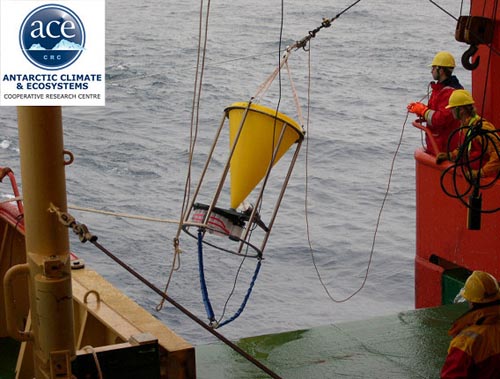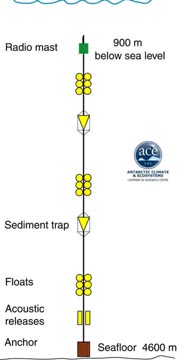
|
Current Casey Temperature |
 |
EditRegion
Marine
Science - |
Sediment
Traps and Moorings |
|
Sediment Traps collect oceanic settling particles. These particles consists of phytoplankton (such as diatoms) zooplankton, faecal pellets from fish and zooplankton, fish and dust. Cups underneath the funnel store the material, and different cups are automatically rotated into place periodically, so that the time series is obtained. The moorings stay out for a year, ad each cup collects for about a fortnight. There are 5 traps in the water at the moment 3 at 47deg S and 2 at 54deg S - and their depths range from 1 to 4 km below the surface. |
||
S.Bray 2004 |
||
|
The material from the traps is taken back to Hobart to be analysed for various compounds, and their constituent elements such as carbon and silicon. The study can be extrapolated from our sites to larger areas of the Southern Ocean by considering the regional oceanography. The results tell us about the flux of various elements raining down, for example giving an indication of how the Southern Ocean acts as a carbon sink, which is important in understanding greenhouse gas control and global warming. |
||
|
||
|
||
| . | ||
| Once the mooring in onboard the samples are retrieved and the sediment traps refurbished with new cups, batteries, etc, te mooring is checked and wire is respooled then the new mooring is redeployed. | ||
Stephen Bray www.acecrc.org.au |

